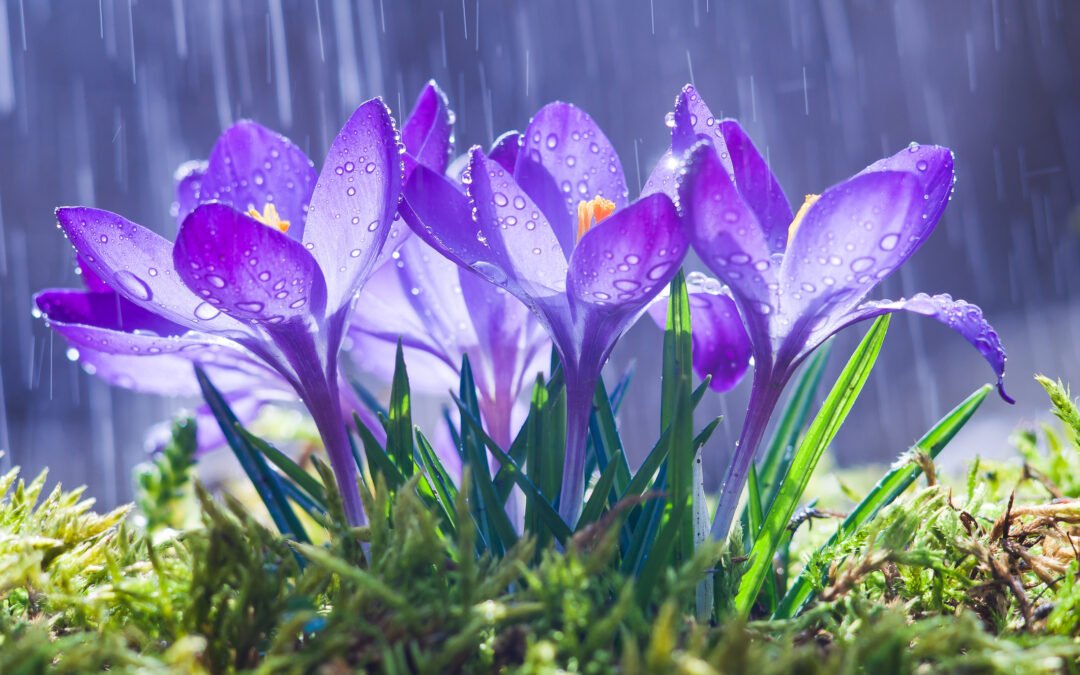Spring is a time for renewal, growth, and spring cleaning. The days are longer, and the temperature is warmer. Our emotions are lifted by extra light and the opportunity to invite more changes into our lives. This is the time of year when we feel energized and ready to improve our health and physical surroundings. Many people begin their “spring-cleaning” by eliminating clutter, opening windows, packing away winter clothes, and cleaning their home environment. Here are some suggestions for keeping your health a priority as you embark upon this year’s spring-cleaning routine.
Get Plenty of Fresh Air Daily
Open windows in your home to increase the circulation of fresh air, even for a short time during colder weather. High oxygen levels help increase the efficiency of many reactions in your body. Fresh air is a key component to losing weight, sleeping well at night, and preventing chronic diseases (most diseases cannot live in an oxygen-rich environment). Opening your windows and spending some time outdoors daily to increase exposure to fresh air constitutes an important part of wellness.
Grow Fresh Air for Spring Cleaning
Use a variety of houseplants in your home or office to purify the air. The average American spends 90 percent of time indoors, and air pollution inside homes or offices can be worse than outdoor pollution. The U.S. Environmental Protection Agency ranks indoor air quality among the top five environmental risks to public health. If you are ready to grow your own fresh air, here are some tips:
- NASA studies recommend keeping one houseplant in a 6—to 8-inch-diameter container for every 100 square feet of your home or office.
- Keep the top of the soil clean and debris-free since this is where much of the filtering happens.
- Keep the foliage clean and dust-free so the leaves can do their job. Wipe the leaves regularly, at least once a week.
- Three plant varieties to consider are the Areca Palm, Mother-in-Law’s Tongue, and the Money Plant. The Areca Palm removes carbon dioxide (C02) from the air and converts it to oxygen. The Mother-in-Law Tongue also does this, but during the night, which makes it an ideal bedroom plant. The Money Plant removes formaldehyde and other chemicals from indoor air.
Be sure to keep the plants healthy, so they will grow vigorously and maintain clean air.
Use Non-toxic Household Products for Spring Cleaning
Improve the cleanliness of your home and reduce your overall toxicity by making your own household cleaners. Consider apple cider vinegar as a main ingredient since it has potent antimicrobial properties. Studies show that vinegar can disinfect just as well as bleach but offers a safer, less toxic alternative.
Simply dilute apple cider vinegar with water (1:1 ratio), creating a natural cleaner. This can also be mixed with other natural cleaning products such as lemon juice, salt, or essential oils. Here are some household uses for the apple cider vinegar mixture:
- Wipe down your digital devices to disinfect them and create a nice shine.
- Remove ink stains from walls or floors (use full-strength vinegar).
- Remove mildew stains from your bath or shower.
- Sanitize clothes by adding a cup of vinegar to the load.
- De-grease your kitchen stove and countertops with the 1:1 solution.
Start a Garden to Grow Vegetables or Herbs
This can be fun and rewarding whether you have a few containers on the patio or a large area in your backyard. You simply need some good soil and a few plants. If you do it organically, you must understand what it takes to keep your plants healthy.
- Feed the soil with non-chemical fertilizers.
- Be sure you have adequate sunlight and protection from wind.
- Start with a few easy plants, such as tomatoes, peppers, and zucchini.
- Herbs such as rosemary, basil, and cilantro are also easy to manage.
As you learn more, you may expand your garden to include all your favorite vegetables and herbs. Consider involving children and learning together. Gardening is a healthy hobby.
Get Sunshine Daily
Your vitamin D level also grows in the springtime. The Vitamin D Council recommends exposing your skin for half the time it takes to turn pink. Generally, 10 to 15 minutes of sunshine daily (without sunscreen) is sufficient. There is no additional Vitamin D benefit with extra exposure. Ultraviolet light will begin to destroy vitamin D in the skin when the skin is overexposed.
Sanoviv wants you to enjoy the beauty of this season and continue the journey to better health by adding fresh air, natural cleaners, gardening, and sunshine to your life.

